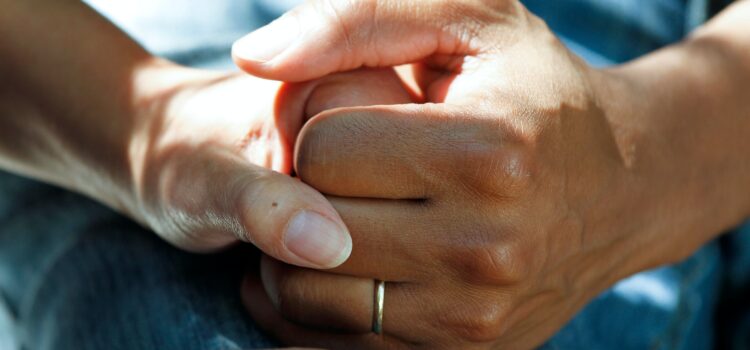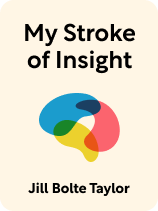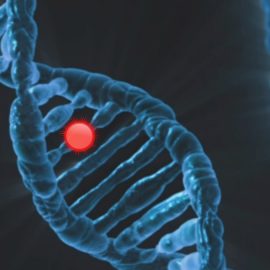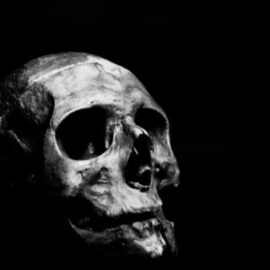

This article is an excerpt from the Shortform book guide to "My Stroke of Insight" by Jill Bolte Taylor. Shortform has the world's best summaries and analyses of books you should be reading.
Like this article? Sign up for a free trial here.
What do stroke survivors need? What are some practical ways to support their recovery?
Jill Bolte Taylor is a neuroscientist who survived and healed from a stroke. She’s uniquely qualified to provide insights on how professional caregivers, family, and friends can support stroke survivors.
Here’s her advice on how to help someone after a stroke.
How to Help Someone After a Stroke
While every stroke will be somewhat different, depending on which parts of the brain are most affected, Taylor’s experience provides an important guide for how to help someone after a stroke. Her insights educate both healthcare professionals and loved ones in ways they can help stroke survivors cope with the realities of their new lives.
People should be mindful of stroke patients’ energy levels, their need for positive reassurance, and the importance that caregivers maintain their belief that stroke patients will recover while celebrating every step along the way.
Taylor makes it clear in her description of her stroke that her energy levels quickly plummeted and were difficult to maintain during recovery. For someone whose brain has been traumatized like hers was, anything that requires concentration is draining. This includes any personal interaction. It’s important that doctors and caregivers be careful about the demands they make on stroke survivors’ time and energy. Rest is crucial both to healing and recharging, and it has to be taken as the body demands, not forced to conform to family members’ needs or the schedule of doctors making rounds.
| Allostasis: The Brain’s Unsung Duty One function of the brain that’s taken for granted but rarely discussed is allostasis—the process by which the brain budgets and allocates the body’s energy usage. In Seven and a Half Lessons About the Brain, Lisa Feldman Barrett calls allostasis the brain’s single most important function. Through allostasis, the brain goes so far as to adjust your sensory perceptions in order to regulate energy usage. It does this by drawing on past experience to create the sensations your body needs in order to regulate temperature, food intake, and threat response. Energy management is especially important when healing from brain trauma since the brain accounts for 20% of your daily energy usage. Our brains use twice as much energy as those of our closest evolutionary cousins, chimpanzees, but studies show that it’s not because of our relative intelligence. Rather, the determining factor seems to be the size of the brain in relation to the body—marmosets have a similar proportion of brain-energy usage to that of humans. In What Is Health?, Peter Sterling argues that allostasis can fail when the body is stressed for extended periods (such as by fast-paced urban lifestyles on our Stone Age hunter-gatherer bodies). The result is higher energy demands that trigger a shift in what the brain considers “normal.” Damaged allostasis expresses itself in hypertension, depression, addictive behaviors, and many other modern ills. Properly functioning allostasis, on the other hand, is crucial for healing the brain and the body. |
Doctors and family members should also be aware that, while a stroke survivor may be nonverbal, they might still be fully conscious and sensitive to their emotional environment. Taylor acknowledges that being around someone who’s had a stroke can be stressful, but she warns that a stroke survivor can pick up on that stress and may strongly react to others’ negative emotions. What stroke patients need most is to be treated with gentleness, compassion, patience, and respect. Doing so can help give them the necessary courage and feelings of support to face the difficult challenge of recovery.
(Shortform note: Responding to a stroke survivor with empathy—a sense of connection and understanding—rather than sympathy, which conflates sadness and pity, can put you in a painfully vulnerable position, so much so that people who deal with it regularly can suffer from compassion fatigue. However, in Radical Acceptance, Tara Brach advocates accepting your own pain in order to show true compassion for others—a compassion that reinforces your connection and helps you give support to those in your life who need it.)
Recovery itself doesn’t adhere to any timetable and will take different shapes for different people. Arbitrary benchmarks and schedules should be ignored, and every step forward should be celebrated in order to give the stroke survivor the encouragement needed to keep going. Taylor points out that it’s important to remember that the person who recovers after a stroke will not be the same person they were before. Friends and family need to cherish the person they become rather than dwell on the person who was lost. In addition, Taylor says that what’s most encouraging of all is to always treat the person you love as if you’re certain they’re going to recover. That, in itself, might be the ultimate boost they need.
(Shortform note: Because stroke recovery is a difficult process fraught with challenges and setbacks, it’s important to help stroke survivors maintain a positive outlook. In The Happiness Advantage, Shawn Achor argues that such an outlook is a mental habit that can be learned through practice. The benefit of such a habit is the self-perpetuating cycle it creates. A positive mindset reinforces itself by recognizing and grabbing opportunities for progress. In addition to celebrating each success, as Taylor says, such a mindset increases feelings of gratitude and connection to a wider community of support.)

———End of Preview———
Like what you just read? Read the rest of the world's best book summary and analysis of Jill Bolte Taylor's "My Stroke of Insight" at Shortform.
Here's what you'll find in our full My Stroke of Insight summary:
- A neuroscientist's experience and observations after suffering from a stroke
- How the author's stroke helped her develop empathy and stillness
- How best to support stroke survivors






